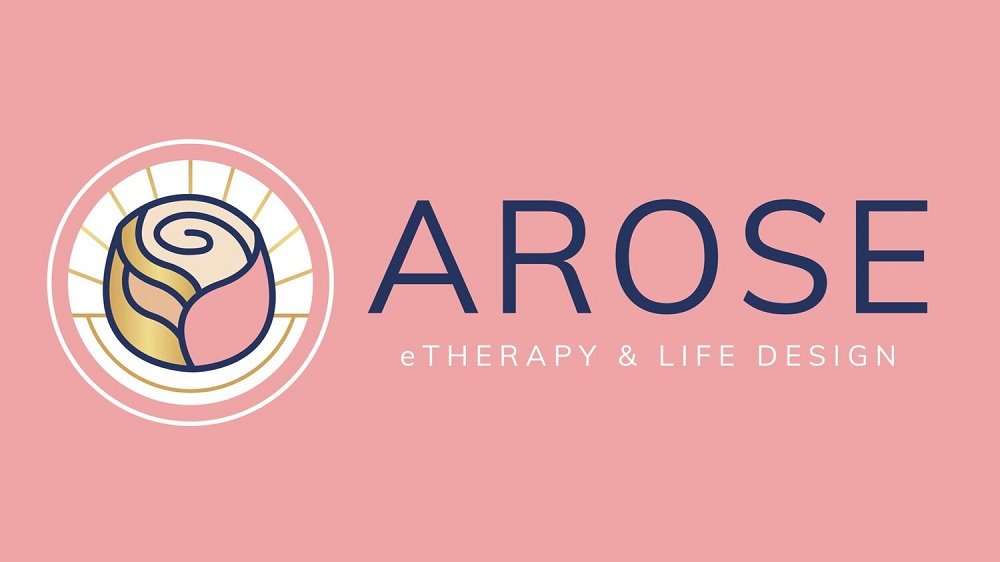grief counseling
arose etherapy® offers
grief counseling
AROSE eTherapy® is an online therapy practice designed for professional women and military. Grief counseling is one service offered by Dr. Alicia Rozycki.
Although a part of life, losses can be heart wrenching. Each one is unique and the impact can vary depending on relationship, suddenness, manner, and circumstances.
Prioritizing your well-being at this time is crucial for healing. Just one hour a week focused on your feelings and needs can make a significant difference in alleviating sadness and restoring balance.
therapy for grief and loss
Maybe you lost a beloved partner, friend, parent, child, or pet and find yourself completely lost without the routines you established with your loved ones. Perhaps you’re longing for just one more phone call or thinking of questions you wished you remembered to ask. Each loss is truly unique. Some losses are traumatic with long-term impacts. No matter how you lost your loved one, the desire for more time is palpable and settling for photos and videos is the best you can do. You may wonder shat will life look like going forward? Even more, you’re too sad and empty to consider it.
Grief can be just as highly variable as anxiety. There is no textbook way of grieving. Each person’s response to loss is unique. Reactions can have a great range and are never wrong. Each person is unique in reacting to death just as each death is unique. Our reactions depend on a range of variables and can be complicated by other factors co-occurring in our lives.
grief counseling in colorado, delaware, florida, maryland, & pennsylvania
If the loss was traumatic (i.e., sudden and violent or horrific such as with a murder or terrible accident), it is possible that in addition to grief, a person may experience what is called an acute stress reaction which may develop into a posttraumatic stress reaction. Again, these distinctions can be tricky to discern and are mostly important for treatment purposes. Just know you are not alone with grief, and help is available whether through online psychotherapy, grief and loss groups, support from your community and/or place of worship, or all of the above.
Also know that a grief reaction can occur in response to any number of life changes, not just death. Any change to a way of life as we knew it brings about a period of adjustment that can include all the classic signs of grief. Loss of our routines can be very unsettling. Be patient with yourself and give yourself some grace through challenging times.
therapy to support widows through grief & loss
Another scenario whereby a relationship ends either gradually or abruptly can occur with the death of our loved one. If you had a truly happy union and lose your partner whether traumatically or expectedly, this can be absolutely heartbreaking. You long for another chat, another hug, and one last kiss. Walking through the home without their presence can leave a gaping hole in your heart. If something great happens, you’re no longer able to share in that joy together.
Sometimes the situation is more complicated. Perhaps your relationship hadn’t been at its best or was even rocky when your partner died. This can leave all sorts of unresolved feelings and frustrations. You find yourself having unfinished business that can never be resolved in the way you wished it could be. This can lead to feelings of guilt, anger, and loss.
what are the five stages of grief?
Since Dr. Elizabeth Kübler-Ross first introduced the concept, the "Five Stages of Grief" have become widely recognized. These stages—Denial, Depression, Bargaining, Anger, and Acceptance—represent common emotional responses to loss. Let’s explore each stage in more detail:
Denial: This stage often begins with shock. The loss feels unbelievable, especially if it’s sudden or traumatic.
Depression: Here, we experience deep sadness and longing for our loved one. We mourn their absence and struggle with the pain of their loss.
Bargaining: Before a loss, we might try to make deals or promises in the hope of preventing it. Afterward, we may engage in magical thinking, wishing we could undo the loss or bring our loved one back.
Anger: In this stage, we may feel intense frustration and lash out at others—friends, family, or even strangers—as we process our grief.
Acceptance: Finally, we come to terms with the loss and find a sense of peace, even though the pain may never fully go away.
It’s important to note that these stages don’t follow a strict order. While early models suggested a linear progression, later research has shown that grief is more fluid. You may move through the stages in any order, and even experience them multiple times or all in one day. Over time, you may find yourself spending more time in acceptance, but healing is a unique and personal journey for each person.
begin online counseling
with ARose etherapy®
in colorado, delaware, florida,
maryland, & pennsylvania
One of the hardest experiences we as humans must endure are losses. We all wish we would never have to endure these experiences. We wish we could keep our loved ones with us. If you struggle with missing your loved ones, please reach out for support. Psychotherapy online offers a space where you can have an hour to yourself, to share whatever is weighing on your mind.
You will have a safe space to release your feelings, cry, and maybe even feel a bit lighter as you work through the grieving process. Take an important step towards healing though this grieving period by investing in your self-care with online therapy. AROSE eTherapy® offers online therapy to serve you in Colorado, Delaware, Florida, Maryland, and Pennsylvania.










